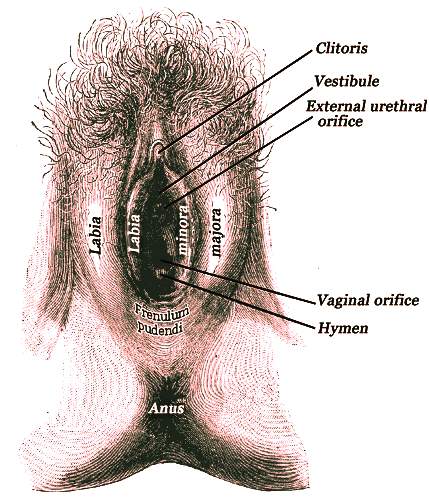|

Michael Gove
FEBRUARY 2014 FEMALE GENTIAL MUTILATION
Michael Gove has agreed to write to all schools in England about female genital mutilation, after a Guardian-backed petition urging the education secretary to take action attracted nearly 250,000 signatures.
The education secretary's pledge was given as he met 17-year-old student Fahma Mohamed, the face of the campaign, and praised her for her "inspirational" work.
He agreed to write to primary and secondary headteachers drawing their attention to guidelines around the issue and reminding them of their duty to protect
schoolgirls.
Speaking after the meeting, Mohamed said she was relieved and delighted at the outcome.
"I think it is fantastic that he is finally listening. I feel like we had got over the biggest hurdle and I am so glad he is willing to meet us and see the work we do."
She thanked the thousands of people who had put their names to the petition. "I want to thank every single person who signed, without them we would never have got this meeting and Mr Gove would never have agreed to write to all
schools. This is a real step to helping us eradicate this issue forever. It's a huge weight off my shoulders."
Gove also agreed to consider how FGM education could be delivered in an age-appropriate way in classrooms, and promised to visit Mohamed and members of the youth charity Integrate Bristol at the City Academy Bristol, one of two schools in the country to run an FGM awareness project.
The education secretary said: "I was very pleased to meet Fahma Mohamed today. She has been running an inspirational campaign. Fahma and her supporters have done fantastic work in raising awareness of female genital mutilation. It is a truly horrific crime. We must do everything we can to end it."
Gove said guidance on keeping children safe would be sent out by Easter – before the summer holidays – and would include material to enable teachers to tackle the subject of female genital mutilation.

This
document is a valuable resource in criminal cases where penetration is
alleged and has not taken place. Digital penetration without foreplay is
the most damaging, penile penetration next and so on. With foreplay and
proper lubrication, damage to a vagina may not be so easy to detect -
but then foreplay suggests willing partners rather than rape. There is
still much research to be done and being done, most in the United States
at the moment. A definition in absolute terms needs to be addressed.
The material will cover prevalence statistics, factors that heighten risk, warning signs and a reminder of the statutory safeguarding duties of teachers and other school staff in relation to FGM, as well as links to other information.
He asked for more evidence of good practice on teacher training and how education about FGM could be age-appropriate.
"I thank Fahma – and other courageous public campaigners against female genital mutilation – for their efforts. We all want to see this very serious form of child abuse consigned to history," he said.
It is estimated that there are 24,000 girls at risk of FGM. Hundreds are taken abroad each summer to be cut, often with little or no indication of what is about to happen to them.
The thinking behind asking Gove to issue written guidance to schools is that awareness of the issue among girls is one of the best ways to ensure that the practice is stamped out.

Fahma
Mohamed
Mohamed, a trustee of Integrate Bristol, met Gove alongside the charity's founder, Lisa Zimmermann, and fellow members Naz Ahmed, Hamda Mohamed and Faduma Dualeh.
"I see this as a huge victory," said Zimmermann. "It is a first if incomplete step, I believe that head teachers want to do their best for their children but they need to be told how to help."
Nimko Ali, co-founder of FGM charity Daughters of Eve, who was also at the meeting, said that campaigners would keep up the pressure on Gove and other ministers. "Mr Gove is a bit late to the party, he has RSVP'd but now he needs to get on the dance floor," she said.
The campaign to end FGM has gathered momentum recently, after the Pakistani schoolgirl Malala Yousafzai said Mohamed was her "sister" and praised her efforts. "Over 140 million girls and women are mutilated – but like keeping girls out of school in Pakistan, we can come out together and be strong and change things for the next generation," Malala said. "I am her sister and I am at her side."
The campaign, one of the biggest hosted on Change.org, also won the backing of the UN secretary general, Ban Ki-moon, who called it deeply inspiring.
As a result of the campaign the Scottish government has already agreed to send a letter to every teacher in Scotland asking them to be proactive about teaching the risks and warning signs of FGM.
Mohamed also received the support of many police crime commissioners, with 23 of 42 signing the petition by Tuesday following a push by lobby group Policing for All. The Royal College of General Practitioners pressured the
government, telling the home affairs select committee that while it believed all GPs who suspect that a child has been subjected to FGM should refer the parent or guardian to social services, it was concerned that services were not sufficiently equipped to deal with cases.

Speaking
in the House of Commons in February 2014 the health minister Jane
Ellison – who recently announced plans to record all instances of FGM
in hospitals and clinics – praised Mohamed as a "brilliant young
woman".
VIRGINITY
Virginity is the state of a person who has never engaged in sexual intercourse. There are cultural and religious traditions which place special value and significance on this state, especially in the case of unmarried females, associated with notions of personal purity, honor and worth. Like chastity, the concept of virginity has traditionally involved sexual abstinence before marriage, and then to engage in sexual acts only with the marriage partner.
Unlike the term premarital sex, which can refer to more than one occasion of sexual activity and can be judgment neutral, the concept of virginity usually involves moral or religious issues and can have consequences in terms of social status and in interpersonal relationships.
The term originally only referred to sexually inexperienced women, but has evolved to encompass a range of definitions, as found in traditional, modern, and ethical
concepts. Heterosexual individuals may or may not consider loss of virginity to occur only through penile-vaginal
penetration, while people of other sexual orientations may include oral
sex, anal sex or mutual masturbation in their definitions of losing one's
virginity. Further, whether a person can lose his or her virginity through rape is also subject to debate, with the belief that virginity can only be lost through consensual sex being prevalent in some
studies.
The word virgin comes via Old French virgine from the root form of Latin virgo, genitive virgin-is, meaning literally "maiden" or "virgin"—a sexually intact young
woman or "sexually inexperienced woman". As in Latin, the English word is also often used with wider reference, by relaxing the age, gender or sexual
criteria. Hence, more mature women can be virgins (The Virgin Queen), men can be virgins, and potential initiates into many fields can be colloquially termed virgins; for example, a skydiving "virgin". In the latter usage, virgin simply means uninitiated.
The Latin word likely arose by analogy with a suit of lexemes based on vireo, meaning "to be green, fresh or flourishing", mostly with botanic reference—in particular, virga meaning "strip of
wood". The first known use of virgin in English comes from an Anglo-Saxon manuscript held at Trinity College, Cambridge.
c. 1200: Ðar haueð ... martirs, and confessors, and uirgines maked faier bode inne to women. — Trinity College Homilies 185 [ms B.15.34 (369)]
In this, and many later contexts, the reference is specifically Christian, alluding to members of the Ordo Virginum known to have existed since the early church from the writings of the Church
Fathers. However, within about a century, the word was expanded to apply also to Mary, the mother of Jesus, hence to sexual virginity explicitly.
c. 1300: Conceiud o þe hali gast, born o þe virgine marie. — Cursor Mundi 24977
Further expansion of the word to include virtuous (or naïve) young women, irrespective of religious connection, occurred over about another century.
c. 1400: Voide & vacand of vices as virgyns it ware. — The Wars of Alexander 4665
These are just three of the eighteen definitions of virgin from the first edition of the Oxford English Dictionary (OED1, pages 230-232). Most of the OED1 definitions, however, are very similar.
The German word for "virgin" is Jungfrau. Jungfrau literally means "young woman", but is not used in this sense. Instead "junge Frau" can be used. The rather dated
German word for a young (unmarried) woman, without implications regarding sexuality, is Fräulein. Fräulein was used in German as a title of respect, equivalent to current usage of Miss in English. Jungfrau is the word reserved specifically for
sexual inexperience. As Frau means "woman", it suggests a female referent. Unlike English, German also has a specific word for a male virgin Jüngling ("Youngling"). It is, however, dated too and rarely used. Jungfrau, with some masculine modifier, is more typical, as evidenced by the film, The 40-Year-Old Virgin, about a 40 year-old male virgin, titled in German, "Jungfrau (40), männlich,
sucht…". Note that the term used for the starsign virgo also is Jungfrau, which makes the above movie title ambiguous. German also distinguishes between young women and girls, who are denoted by the word Mädchen. The English cognate "maid" was often used to imply virginity, especially in poetry.
German is not the only language to have a specific name for male virginity; in
French, male virgins are called "puceau". Males presenting with phimosis who injure their frenulum during first penetration are said to be "uncartridged" as opposed to "cartridged" before first
intercourse.
By contrast, the Greek word for "virgin" is parthenos (παρθένος, see Parthenon). Although typically applied to women, like English, it is also applied to men, in both cases specifically denoting absence of sexual experience. When used of men, it does not carry a strong association of "never-married" status. However, in reference to women, historically, it was sometimes used to refer to an engaged woman—parthenos autou (his virgin) = his fiancée as opposed to gunē autou (his woman) = his wife. This distinction is necessary due to there being no specific word for wife (or husband) in Greek.
By extension from its primary sense, the idea that a virgin has a sexual "blank
slate", unchanged by any past intimate connection or
experience, leads to the abstraction of unadulterated purity.

Cultural
-
Definitions of virginity loss
There are varying understandings as to which types of sexual activities result in loss of virginity. The traditional view is that virginity is only lost through
vaginal penetration by the penis, consensual or non-consensual, and that acts of oral sex, anal sex and mutual masturbation do not result in loss of virginity.
Though penetration digitally by a finger [more damaging] is much
the same as penile penetration and will result in loss of
virginity and is technically also a rape carrying with it a hefty
prison sentence. A person who engages in such acts with no history of having engaged in vaginal intercourse
(or digital penetration) is often regarded among heterosexuals and researchers as "technically a
virgin". In contrast, gay or
lesbian individuals may describe such acts as resulting in loss of virginity. Some gay males regard anal penetration as resulting in loss of virginity, but not oral
sex, and lesbians may regard oral sex or fingering as loss of
virginity. Some lesbians debate the traditional definition and whether or not non-penile forms of vaginal penetration constitute virginity
loss, while other gays and lesbians assert that the term "virginity" is useless to them because of the prevalence of the traditional
definition.
Since the early 1990s, the concept of "technical virginity" has been popular among heterosexual American
teenagers. For example, oral sex is common among adolescent girls who fellate their boyfriends to create and maintain intimacy while preserving their virginity, avoiding pregnancy, or
both. In a 1999 study published in the Journal of the American Medical Association, the definition of sex was examined based on a 1991 random sample of 599 college students from 29 US states; it found that 60% said oral-genital contact (like fellatio, cunnilingus) did not constitute having sex. "That's the 'technical virginity' thing that's going on," said Stephanie Sanders, associate director of the Kinsey Institute for Research in Sex, Gender and Reproduction. Sanders, as the co-author of the study, and along with other researchers, titled the findings "Would You Say You 'Had Sex' If
...?" In another study, published in 2001 in The Journal of Sex Research, over half of respondents considered that virginity could only be lost through having consensual
sex. However, in a study released in 2008 by the Guttmacher Institute, author of the findings Laura Lindberg stated that there "is a widespread belief that teens engage in nonvaginal forms of sex, especially oral sex, as a way to be sexually active while still claiming that technically, they are virgins", but that her study drew the conclusion that "research shows that this supposed substitution of oral sex for vaginal sex is largely a
myth".
Virginity pledges (or abstinence pledges) made by heterosexual teenagers and young adults may also include the practice of "technical virginity". In a peer-reviewed study by sociologists Peter Bearman and Hannah Brueckner, which looked at virginity pledgers five years after their pledge, they found that the pledgers have similar proportions of sexually transmitted diseases (STDs) and at least as high proportions of anal and oral sex as those who have not made a virginity pledge, and deduced that there was substitution of oral and anal sex for vaginal sex among the pledgers. However, the data for anal sex without vaginal sex reported by males did not reflect this
directly.
Some historians and anthropologists note that many societies before the sexual revolution that place a high value on maintaining virginity for marriage actually have a large amount of premarital sexual activity that does not involve vaginal
penetration.
Female virginity
- Cultural value
(Le Droit Du Seigneur (1872) by Jules Arsène Garnier)
The first act of sexual intercourse by a female is commonly considered within many cultures to be an important personal milestone. Its significance is reflected in expressions such as "saving oneself", "losing one's virginity," "taking someone's virginity" and sometimes as "deflowering." The occasion is at times seen as the
end of innocence, integrity, or purity, and the sexualization of the individual.
Traditionally, there was a cultural expectation that a female would not engage in premarital sex and would come to her wedding a virgin, which would be indicated by the bride wearing a white gown, and that she would "give up" her virginity to her new husband in the act of consummation of the marriage.
In some cultures, it is so important that a female be a virgin that a female will refrain from inserting any object into her vagina, such as a tampon, menstrual cup or dildo, or undergoing some medical examinations, so as not to damage the hymen. Some females who have been previously sexually active (or their hymen has been otherwise damaged) may undergo a surgical procedure, called hymenorrhaphy or
hymenoplasty, to repair or replace her hymen, and cause vaginal bleeding on the next intercourse as proof of virginity (see
below). In some cultures, an unmarried female who is found not to be a virgin, whether by choice or as a result of a rape, can be subject to shame, ostracism or even an honor killing. In those cultures, female virginity is closely interwoven with personal or even family honor, especially those known as shame societies, in which the loss of virginity before marriage is a matter of deep
shame. In other cultures, for example in many modern-day Western cultures, sexual abstinence before marriage is not taken as seriously as it is in those discussed above.
Virginity is regarded as a valuable commodity in some cultures, and the right to have sexual intercourse with a virgin can be bought. For example, in Japan, geishas would sell the right of first access in a ritual called mizuage. There is also a legendary droit du seigneur ("the lord's right", often conflated with the Latin phrase "ius primae noctis") which alleged entitled the lord of an estate to take the virginity of the estate's virgins on the night of their marriage, a right which the lord can trade for money. In the film Pretty Baby (1978) there is an auction for the virginity of 12-year-old Violet.
It was the law and custom in some societies that required a man who seduced or raped a virgin to marry the girl or pay compensation to her
father. In some countries until the late 20th century, a woman could sue a man who had taken her virginity but did not marry her. In some languages, the compensation for these damages are called "wreath money"

Virginity
testing should be mandatory in any case where an allegation of rape or
other abuse is made, to enable to defence and prosecution to establish
the facts of the case and whether there is sufficient evidence to
proceed with a trial. Obviously, where a claim of non-consensual
penetration is alleged (especially multiple claims) if the claimant is
lying and is still intact, that fact will not wear well with a jury or
the trial judge. A complete and comprehensive set of tests should
therefore be undertaking to be able to build a picture as to the
likelihood that penetration has or has not taken place. Women will
naturally object to such tests, when without them conviction of an
innocent man is possible, hence, compensation may be claimed and any
revenge motive will succeed - which is far more often the case than an
eager prosecution will let on.
VIRGINITY
TESTS
A virginity test is the practice and process of determining whether a female is a virgin, i.e., whether she has never engaged in sexual intercourse. The test involves an inspection of a female's hymen, on the assumption that her hymen can only be torn as a result of sexual intercourse.
Virginity testing is a very controversial practice, both because of its implications for tested girls and because it is not
accurate. It is considered degrading and a violation of human rights by Amnesty
International and is illegal in many countries.
Some cultures require proof of a bride's virginity prior to her marriage. This has traditionally been tested by the presence of an intact hymen, which was verified by either a physical examination (usually by a physician, who would provide a certificate of
virginity) or by a "proof of blood," which refers to vaginal bleeding that results from the tearing of the
hymen. The physical examination would normally be undertaken before the marriage ceremony, while the "proof by blood" involves an inspection for signs of bleeding as part of the consummation of marriage, after the ceremony.
Harm
Requiring a female to undergo a virginity test is widely seen as harmful, especially when it is performed on behalf of a government. The practice is seen as sexist, perpetuating the notion that sexual intercourse outside of marriage is acceptable for men, but not for women, and suggesting that women's sexual activity should be subject to public knowledge and criticism, while men's should not.
On 23 March 2011 Amnesty International protested to the Egyptian government over alleged forced virginity testing of women
protestors. Egypt admitted its military forces had performed virginity tests on women detained during the 2011 Egyptian revolution. It said the tests were carried out in order to refute claims that the women had been raped while in detention. Amnesty International described the virginity tests as "nothing less than
torture." Virginity tests done by the military on detainees were banned in Egypt on December 27, 2011,
but in March, 2012, the physician who carried out the tests was acquitted of all charges. Samira Ibrahim is the Egyptian woman who filed suit against the government, initiating public discussion of the Egyptian government's use of the testing. She said in response to the physician's acquittal, “A woman’s body should not be used as a tool for intimidation, and nobody should have their dignity violated.”
Virginity testing was also used on women entering Britain on a so-called fiancee visa. This practice was exposed by The Guardian in 1979
and the policy was quickly changed. In January 1979, a woman was required by English immigration officers to undergo a virginity test when she arrived in London claiming that she was there to marry. Such a visit did not require a visa, but as proof of her bona fides, she was required to submit to the
test.
Examinations to test for previous sexual activity were commonly performed in India on rape victims until it was banned on 29 January 2012. Human Rights Watch had strongly criticized the test as "degrading and unscientific” and a second assault on traumatized women, and raised concerns about Indian courts bringing views of
rape victims' general moral character into their
rulings.
Reliability
Virginity testing is not a reliable indicator of a female having actually engaged in sexual intercourse because the tearing of the hymen may have been the result of an involuntary sex act, such as rape, or other event. Many researchers note that the presence of an intact hymen is not a reliable indicator of whether a female has been vaginally
penetrated. The hymen is a thin film of membrane situated just inside the vulva which can partially occlude the entrance to the vaginal canal. It is flexible and can be stretched or torn during first engagement in vaginal intercourse. However, a hymen may also be broken during physical activity or the use of a tampon, menstrual cup or dildo, or during some medical examinations. Many women possess such thin, fragile hymens, easily stretched and already perforated at birth, that the hymen can be broken in childhood without the girl even being aware of it, often through
athletic activities. A slip while riding a bicycle may on occasion result in the bicycle's saddle-horn entering the introitus just far enough to break the
hymen.
It is commonly accepted that some women are born without hymens.
In the majority of women, the hymen is sufficiently vestigial as to pose no obstruction to the entryway of the vagina. In rare cases, a woman's hymen may need to be opened, in a surgical procedure known as hymenotomy, because of an imperforate hymen that prevents the release of menstrual discharge.
A female can undergo a surgical procedure, hymenorrhaphy or hymenoplasty, to repair or replace a torn hymen, to pass a virginity
test.
Testing process
The process of virginity testing varies by region. In areas where medical doctors are readily available, such as Turkey before the country banned the practice, the tests will often be given in a doctor's
office.
However, in countries where doctors are not available, testers will often be older, respectable women, or whoever can be trusted to search for a
hymen. This is common among African tribes that perform the test.
In virginity tests, the presence of a hymen is often used to determine if a woman is a virgin. Another form of virginity tests involves testing for laxity of vaginal muscles with fingers (the "two-finger test"). A doctor performs the test by inserting a finger into the female's vagina to check the level of vaginal laxity, which is used to determine if she is "habituated to sexual
intercourse." However, the usefulness of these criteria has been questioned by medical authorities and opponents of virginity testing because vaginal laxity and the absence of a hymen can both be caused by other factors, and the "two finger test" is based on subjective
observation.
It
follows from such observation, that where a hymen is tightly closed, and
cannot be induced to open with, for example, labial traction, that the
subject is a virgin. Such observations can be useful in criminal cases
alleging penetration. Claims to penetration whether penile or digital can
be disproved clinically and may be measured with a calibrated colposcope.
On the other hand, if a female subject has been penetrated, then that too
will show positively and a conviction may be more reliably obtained. These
tests have only recently been introduced as a result of studies carried
out mainly in the USA. In the UK, new guidance in cases involving
(especially child abuse) rape was introduced by the Royal College of
Paediatricians & Child Health in March of 2008. Before this the
guidance in use since 1997, was quite wrong as to hymenal notches
being suspicious, where they are now known to be naturally occurring in
females from as young as six. Before the new US studies proved that this
was so, many men who were wrongly accused were sent to prison causing
great injustice. In
the UK the Criminal Cases Review Commission referred only two cases back
to the Court of Appeal in the period 1998 - 2008. Given that many of those
wrongly convicted do not seek to challenge their wrongful convictions, and
that the CCCR process nearly (which is adversarial in the negative - on
the assumption a conviction is sound) always refuses to refer a case by
submitting provisional reasons that throws the onus of investigation onto
the applicant. This puts off about 95% of applicants who are not prepared
for and do not usually know about Judicial Reviews and the strict time
limits for applications to the High Court. A
study of prisoners in the UK has shown that six out of a prison wing of
100 men, that six prisoners had evidence of wrongful conviction, with
another 10 whose trial was tainted and many more who were advised by their
barristers to plead guilty to reduce the inevitable long sentence, given
that the common law rule of warning a jury not to convict a person on the
mere say so of a claimant, was arbrogated in 1994, as a means to pump up
the rate of convictions at the expense of convicting many innocent
defendants. These
new English rules effectively mean that the accused (especially men) is
now guilty until he proves his/her innocence. Whereas in any other kind of
criminal charge, the defendant is innocent until proven guilty. This is
cause for much concern among the families of those wrongly convicted. For
this reason, more research is necessary if so-called "noble cause
justice", where the state know that they will convict a high
proportion of innocent men - but continue to do so anyway. Only one or two
out of hundreds of cases end up being quashed in the European Court of
Human Rights (ECHR), where the delay to a hearing is in the region of 4
years. Despite the obvious disparity between a defendant's Article 6 right
to a fair hearing, unless and until a case is heard where these specific
points may be tackled with hard forensic evidence, many more men will find
themselves on the wrong side of barred windows. FACT:
Did you know that in the UK the government would rather pay a fine every
year to the ECHR to keep razor wire in place on prison boundaries, than
comply with their obligation to prisoners not to install such dangerous
devices?
Among the Bantu of South
Africa, virginity testing or even the suturing of the labia majora (called infibulation) has been commonplace. Traditionally, Kenuzi girls (of the Sudan) are married before
puberty by adult men who inspect them manually for virginity. In such
situations and without measuring equipment such as colposcopes, the only
way for a male to ensure his bride is pure is to secure them before they
are tempted stray.

Reasons for testing
1. Prevention of disease and pregnancy
Preventing the spread of HIV and teenage pregnancy are examples of reasons given by proponents of virginity testing. In 2004, a Zimbabwean village chief, Naboth Makoni, stated that he would adopt a plan to enforce virginity tests as a way of protecting his people against HIV. He explained that he focuses on girls because he believes they are easier to control than
boys. In South Africa, where virginity testing is banned, the Zulu tribe believes that the practice prevents the spread of HIV and teenage
pregnancy. A woman interviewed by the Washington Post stated that "[Virginity testing] is important so that young girls become scared of boys. Because what happens is first the boy strips you of your virginity, and the next thing you know is you are pregnant and you have
HIV."
2. Royal affirmation
Depending on whether the girl in question is declared a virgin, the aftermath of the test can be joy or danger. In Zulu culture, there is a tradition in which girls of a certain age can perform a dance for the king. However, only virgins are allowed to
participate. If a girl is tested and declared a virgin, she brings honor to her family. If a girl is found not to be a virgin, her father may have to pay a fine for ‘tainting’ the community and the girl may be shunned from the ‘certified’
virgins. Because of the ramifications that being considered impure have for the girls and their families, virginity testing has the potential to be a life-changing event.
3. Immigration
The United Kingdom had a policy to use virginity testing on women who said they were immigrating to marry their fiances who were already living in the
country. The British government believed that if the women were virgins, they were more likely to be telling the truth about their reason for immigrating to the
country. The policy ended in 1979
LEGAL
ISSUE
The hymen is a membrane that surrounds or partially covers the external vaginal opening. It forms part of the vulva, or external genitalia, and is similar in structure to the vagina. In children, although a common appearance of the hymen is crescent-shaped, many shapes are possible.
The effects of sexual intercourse and childbirth on the hymen are variable. If the hymen is sufficiently elastic, it may return to nearly its original
condition, but never the same. In other cases, there may be remnants (carunculae myrtiformes), or it may appear completely absent after repeated penetration. Additionally, the hymen may be lacerated by disease, injury, medical examination, masturbation or even physical exercise. Where it has been held that virginity tests are not possible, there are
now several authoritative studies that suggest otherwise.
Operating concept of virginity
Female virginity may either be defined solely according to the presence or absence of a hymen, or else according to more ambiguous, philosophical criteria.
Methods of detection
Several methods of "virginity fraud detection" claim to be available, but cannot adequately determine the status of virginity.
1. Inspection to determine whether hymen restoration surgery has been performed, and/or the vagina's general state of elasticity. In many societies, such inspections have traditionally been conducted by older female relatives of the prospective groom, but are increasingly performed by doctors, who may issue certificates of virginity for the benefit of the groom's family. Digital inspection may fail to detect surgical suture which are visible only by means of specialized medical instruments.
2. Background checks by a private detective aimed at uncovering a woman's romantic and/or medical history. This unfortunately relies on reporting of people who may have a score to settle with the woman being investigated. Ironically, a number of attempts at virginity fraud are exposed by a woman's contact with medical clinics specializing in hymen restoration procedures.
RAPE
Virginity testing is not a reliable indicator of a female having actually engaged in sexual intercourse because the tearing of the hymen may have been the result of an involuntary sex act, such as rape, or other event.
DESCRIPTION
The hymen is a corona of thick skin situated just outside the vaginal canal, surrounding the entrance but in no way covering the vagina, and is better described as a "vaginal corona" rather than "membrane" or "film". It is highly flexible and can be stretched or torn during every engagement in vaginal intercourse. Thus
the more frequent there is sexual activity, the more signs of trauma
will be visible. Using a calibrated colposcope the rate of detection of
injury can be as high as 83% for each sexual encounter.
It is a misconception that the hymen always tears during first intercourse. If the woman is not aroused, the hymen will not be as elastic as if it is moist due to arousal, and the risk increases for the corona to be damaged, which often is the case during the first intercourse and is most certainly the case when vaginal penetration occurs without participatory foreplay - such as rape or abuse, especially in younger females where the opening is
smaller and not fully developed.
In virginity tests, the presence of a hymen is often used to determine if a woman is a virgin. Another form of virginity tests involves testing for laxity of vaginal muscles with fingers (the "two-finger test"). A doctor performs the test by inserting a finger into the female's vagina to check the level of vaginal laxity, which is used to determine if she is "habituated to sexual intercourse"
Naturally, feminists will resist the notion that virginity testing is reliable, for it threatens much of their drive for enhanced status for women in society. But, where sexual allegations have been made, this is surely a case for rigorous and scientific measurements, taking into account all of the factors of a case. In some cases false allegations could be proven, especially where a girl or woman claims virginity prior to repeated rapes - where it is almost certain that such an allegation may be disproved from careful measurement and other analysis.
Today men are being convicted of rape where the claimant is actually
still intact, but where there was no proper objective examination
of the vagina, or where a sloppy defence simply has not bothered
to properly represent their client.

A
man accused of regularly having penetrative sexual encounters with
a girl around the age of 13 onwards, was convicted with Judge
Cedric Joseph (above) presiding at the trial. Since the trial in
February of 2008 new medical guidance has been published that
explains that when a girl in penetrated
more than once, there will be measurable physical signs - such as
a gaping hymen. In this case the girls was: "tightly closed
and could not be opened with labial traction." It is alleged
that the prosecution
knew about this information but instead of waiting a month until the
new guidance was published in the UK, they actually accelerated
the trial to beat the publication just one month after the trial
took place. Judge Joseph told the jury in this case that assaults
could have been a frequent as 40 occasions - in which case the
girl would have been is a serious way and most certainly scarred
for life. There was though no trauma at all. This Judge also told the members of the jury that a
diary belonging to the girl's mother, was the defendants. With all
of these things going wrong during the trial, is it any wonder
that the man was convicted. What is needed now is a proper investigation
by the CCRC,
where so far they have discovered that the jury were mislead as to
naturally occurring features - but have failed to look into the
virginity issue.


Commenting
on the state of research into female genitalia as relates to
claims of assault and the like, Dame Butler Sloss was of the
opinion that more work was needed. We could not agree more. We
wonder if Dame Butler Sloss might take an interest in this case
such that the CCRC
might obtain a report as to the claimant's virginity? She presided
over much of the Lady Diana accident investigation. Her husband
was the subject of a sex scandal reported in the News
of the World.
LINKS
and REFERENCE
http://www.theguardian.com/2014/feb/25/michael-gove-schools-female-genital-mutilation
http://www.rcpch.ac.uk/
http://www.rcpch.ac.uk/events/child-protection-courtroom
http://www.rcpch.ac.uk/child-health
International
Activities
Child
Advocacy International (CAI)
Department
for International Development (DFID)
Global
health partnerships: UK contribution to health in developing countries
Important
information for International Medical Graduates
International
Child Health Group (ICHG)
International
PaediatricAssociation (IPA)
Royal
Colleges' International Forum (RCIF)
Royal
College of Obstetrics and Gynaecology International News
Royal
College of Physicians
Royal
College of Surgeons
United
Nations International Childrens Emergency Fund (UNICEF)
World
Health Organization (WHO)
http://en.wikipedia.org/wiki/Virginity_test
http://en.wikipedia.org/wiki/Virginity_fraud
http://en.wikipedia.org/wiki/Hymen
Disclaimer
Some of the views expressed on this website are those of
individual contributors and do not necessarily represent the
views of Max Energy Limited. All content is for general information only and is
not intended to replace professional advice of any kind. MEL is
not responsible or liable for any actions taken by a user of
this site. MEL is not liable for the contents of any external
sites listed, nor does it endorse any advice, products or
services mentioned on these sites.
HUMANS:
Index
to navigate Animal Kingdom:-
|
AMPHIBIANS |
Such
as frogs (class: Amphibia) |
|
ANNELIDS |
As
in Earthworms (phyla: Annelida) |
|
ANTHROPOLOGY |
Neanderthals,
Homo Erectus (Extinct) |
|
ARACHNIDS |
Spiders
(class: Arachnida) |
|
BIRDS
|
Such
as Eagles, Albatross
(class: Aves) |
|
CETACEANS
|
such
as Whales
& Dolphins
( order:Cetacea) |
|
CRUSTACEANS |
such
as crabs (subphyla: Crustacea) |
|
DINOSAURS
|
Tyranosaurus
Rex,
Brontosaurus (Extinct) |
|
ECHINODERMS |
As
in Starfish (phyla: Echinodermata) |
|
FISH
|
Sharks,
Tuna (group: Pisces) |
|
HUMANS
-
MAN |
Homo
Sapiens THE
BRAIN |
|
INSECTS |
Ants,
(subphyla: Uniramia class: Insecta) |
|
LIFE
ON EARTH
|
Which
includes PLANTS
non- animal life |
|
MAMMALS
|
Warm
blooded animals (class: Mammalia) |
|
MARSUPIALS |
Such
as Kangaroos
(order: Marsupialia) |
|
MOLLUSKS |
Such
as octopus (phyla: Mollusca) |
|
PLANTS |
Trees
- |
|
PRIMATES |
Gorillas,
Chimpanzees
(order: Primates) |
|
REPTILES |
As
in Crocodiles,
Snakes (class: Reptilia) |
|
RODENTS |
such
as Rats, Mice (order: Rodentia) |
|
SIMPLE
LIFE FORMS
|
As
in Amoeba, plankton (phyla: protozoa) |
|
|


Sexual
cannibalism in humans is commonplace where the (UK) state still pays
bunny-boilers to fabricate allegations - despite the untenable ratio of
false allegations. This is called Noble Cause Corruption, so named
because the cause (more convictions of rapists and perverts) is noble,
but the means (convicting significant numbers of innocent men) is
corrupt. A decent justice system is one where convictions are safe;
where an appeal is guaranteed and where the court system does not refuse
appellants the evidence for their barristers to perfect grounds of
appeal. This book is based on a real case study, that reveals the fatal
flaws in the English justice system. No man is safe until these issues
are dealt with - it could happen to anyone.
|








